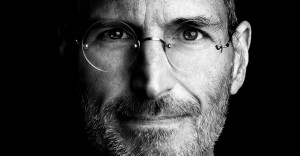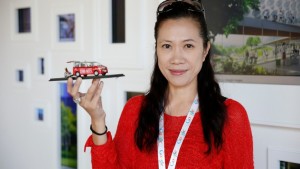
Opportunity Knocks, Part 2: The Power of The Human Connection in Business
February 19th, 2017
I wrote a couple of weeks ago about the Social Enterprise Boost Initiative (SEBI) Summit, an event in support of JN Foundation’s ongoing project funded by USAID. At that event I talked to social entrepreneurs about harnessing social media in marketing one’s business.
There’s a lot of “social” going on in that paragraph, isn’t there! And there’s a reason why. This is not only a follow-up to what transpired at that well-attended conference, but also to my previous article about the vision of Thione Niang, the diligent and focused young Senegalese American, who visited Jamaica last month to motivate young entrepreneurs. There is a thread that I have been following throughout these special events. It is almost spiritual, and certainly philosophical.
It is simply this: No matter how slick your marketing, how well-honed your skills and how impressive your credentials… If there is no heart and soul in what you are doing in business, you will not ultimately succeed. You may make money, and there is nothing at all wrong with making money. You may impress people with your business “smarts.” You may be invited to speak at special events. You may even win an award or two. But…the social, the human ingredient must be there, and it must be powerful and recognizable.
You may think this is obvious. As Mr. Niang said at the Jamaica Chamber of Commerce event, you must have a passion for what you do if you are to set out as an entrepreneur of any kind. Otherwise, what’s the point? However, this is all the more important for social entrepreneurs. If you don’t truly care about and believe in the community you are serving, then you will not feel any burning desire to sell the products that will help to support that community. As JN Foundation’s General Manager Saffrey Brown has repeatedly emphasized at SEBI events, social entrepreneurship is not a charity, even if it is filling a need and serving a social good. You must have a business plan. You must figure out your costing. You must keep an eye on the bottom line at all times. You must do your marketing. And…

Steve Jobs (1955 – 2011), co-founder, chairman and CEO of Apple, Inc. A powerful vision in a kind face.
And something else. If you look at any very successful large company, there is another critical factor in its success – and that is the human element. One obvious example is Apple. It is not only a phenomenal global name brand, its products adored by millions (including me – I am using one right now!) but it is also the dazzling result of a carefully honed philosophy, and a very personal one – that of its founder Steve Jobs. Looking closer to home, GraceKennedy in Jamaica is another successful firm that springs to mind. In the book The Business of Nation Building: Excerpts from the Selected Speeches of Douglas Orane (which I reviewed here) a clear vision emerges, and it is about “giving back to society.” That is what leadership is all about, in whatever sphere, Mr. Orane asserts. How reminiscent that is of Thione Niang’s own embrace of giving as much as, or more than one receives – not at the expense of one’s business interests, but at the core of it. Mr. Niang and Mr. Orane both have kind faces. It radiates.
This is how we should see social entrepreneurship. The inspiring speakers at the SEBI Summit almost unconsciously embodied that human element of caring, without which they would never have set out on their journeys. The founder of Diamond Cabs in Hong Kong, Doris Leung, spent some time describing the emotional personal story that led ultimately to a business that now fills a critical niche in her aging society. It was a sad story – that of the decline in her mother’s physical abilities and her eventual passing; but at some point “I stopped crying,” said Leung. She realized through her beloved mother’s experience that there was a need for accessible public transport for seniors and the disabled, and tapped into that need.

Scheed Cole at work. A creative entrepreneur, who never loses sight of the human element that connects us all.
Like Ms. Leung, young Jamaican Scheed Cole, founder of 360 Recycle Manufacturing, turned his personal misfortune into opportunity; he was basically abandoned and homeless at the age of thirteen. Like Mr. Niang, he got himself educated, did his research and used his technical skills, his passion for science and remarkable creativity to fix a social problem – that of improper waste disposal. Now he is moving on to buildings made of waste material such as plastic bottles. He believes in what he does and so he is able to pull people along with him. He wants to make a difference in society; and he is already doing so. Just take a look at his wonderful playground at the community center in Rose Town, for example. Lucky children!
“It’s not about your age, it’s about your passion,” said Doris Leung.
“I’ve come from a very dark past, but I have a vision of a great zero waste economy,” said Scheed Cole.
“Technology is nothing. What’s important is that you have a faith in people, that they’re basically good and smart, and if you give them tools, they’ll do wonderful things with them,” said Steve Jobs.
“I am here to create a pathway, a ladder for others to climb to success in the same way that others did so for me. Doing this has become an activity I deeply love and enjoy,” said Douglas Orane.
Passion. Faith. Vision. Love. Sounds like a philosophy, doesn’t it? Follow yours, and don’t let go!
N.B. SEBI’s Pitch for Purpose Competition is coming up on February 24. It should be exciting! Check the website for details.
Tags: Apple, Diamond Cabs, Doris Leung, Douglas Orane, GraceKennedy, Hong Kong, Jamaica Chamber of Commerce, JN Foundation, Kingston, Saffrey Brown, SEBI, Social Enterprise Boost Initiative, Social Enterprise Summit, social media, Steve Jobs, Technology, Thione Niang
The Gleaner reserves the right not to publish comments that may be deemed libelous, derogatory or indecent.
To respond to The Gleaner please use the feedback form.
3 Responses to “Opportunity Knocks, Part 2: The Power of The Human Connection in Business”
- We Are the Zoomers
- Living Online with Humans and Birds: NAOC 2020
- Human Trafficking and the Problem of Public Education
- Down Memory Lane
- Are We Ready to Recover from COVID-19?
- Road Safety Matters: Is Your Vehicle Safe?
- Sexual Harassment, Me Too, and the Minister’s Disturbing Giggle
- The Vulnerable Senior Citizens, Private Care Homes and COVID-19
- A Muddle Over Masks
- Here is Something Life-Saving You Can Do: Give Blood!






[…] Opportunity Knocks, Part 2: The Power of The Human Connection in Business […]
Awesome…this is really inspiring….we need more stories like these to motivate the passion inside of us…thanks gleaner.
Thank you, Lloyd for your comments and for reading! I try to look at areas in Jamaican society where people are “making a difference.” It does help to motivate!